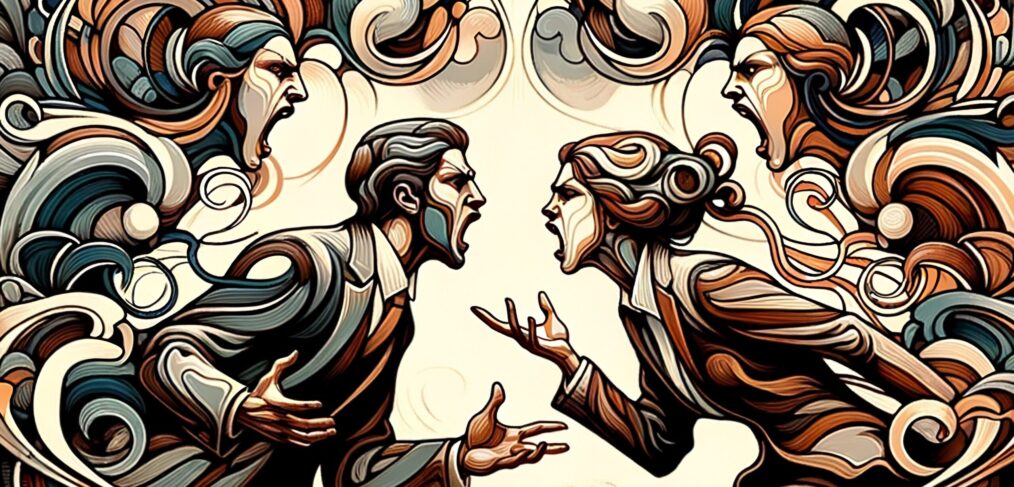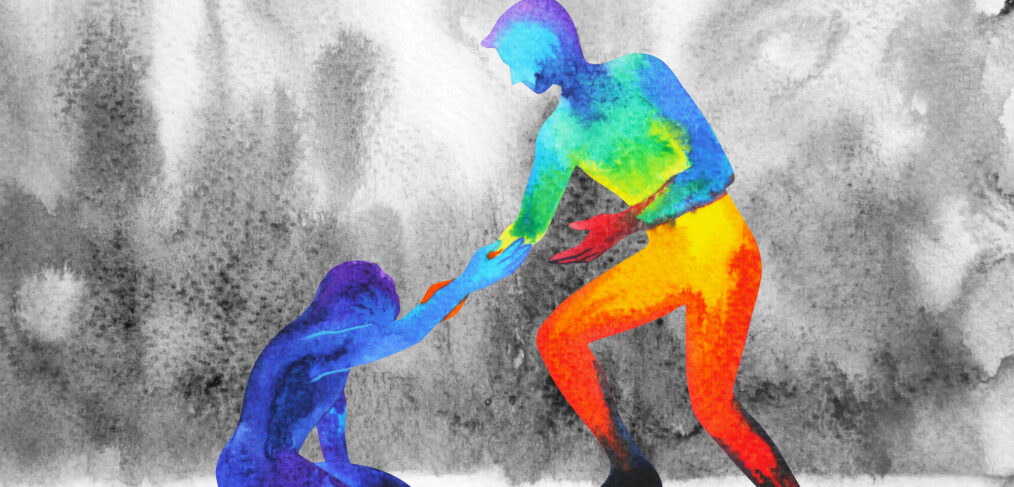We’ve all been there. You’re going along with your day, and suddenly, someone lashes out. It might be anyone—a friend, coworker, or family member—and it is totally unexpected. You don’t understand. You didn’t do anything wrong. The person is acting like a child. Your first reaction might be defensiveness—hopping right into the sandbox. You don’t realize that your reaction might also be seen as irrational. You try not to react right away. But then you repeat the person’s behavior repeatedly in your head and start fuming.
A friend and I were having a light conversation this past weekend around a fire pit, and a subject came up on which we disagreed. He and I differ in our opinions that largely follow political leanings. We had never talked about it, but I had heard him say some things that made his politics reasonably clear. When he said something that I disagreed with, my first reaction was, “Oh, shit, there goes the relaxed atmosphere.” But then I thought, “Why can’t we have an honest disagreement and not make it personal or political?” It is possible, although seemingly less and less achievable these days. So I gave it a shot. In a very polite way, I said that I was in favor of something that he thought was wrong. And a miracle happened! He said, “Well then, we should agree to disagree,” noting that he hated how hard it was to do that these days. It was fantastic. We dropped the subject and got on with our enjoyable evening.
Holidays can be rough. Hectic schedules, finding gifts, family drama—it can be overwhelming. Stress is a common side effect of a season that is meant to be happy, celebratory, and fun. But where does that stress come from? It’s different for different people but may include unreasonable expectations, social anxiety, or loneliness. Instead of feeling joy, many end up feeling irritable, sad, or disappointed and can’t wait for it all to be over. But the holidays can be the joyful, exciting, and magical time they’re meant to be with just a few tweaks of your perspective.
Vulnerability is often thought of as a negative state. It is clearly negative in many contexts, such as business strategy, physical infrastructure, or national security. From the perspective of an individual, vulnerability can also feel negative. When you’re vulnerable, there is a greater chance you’ll be hurt, embarrassed, or will fail. But it’s also true that allowing yourself to be vulnerable is a meaningful way to learn (particularly about yourself), grow, and find opportunities you may otherwise have missed.
How can I live a normal, comfortable life with so much pain and suffering in the world?
It’s a good question. For some, it’s a source of constant guilt and anxiety. A better (healthier) question might be: Am I doing what I can to decrease the pain and suffering in the world while still leading a fulfilling, meaningful life? The truth is that your suffering doesn’t stop others from suffering, while your working to decrease suffering does. You also might feel you don’t have the right to be happy while there is so much suffering in the world. That, too, begs the question of impact. Will you being miserable make others less miserable? So, how can you reconcile your life with the state of the world?





